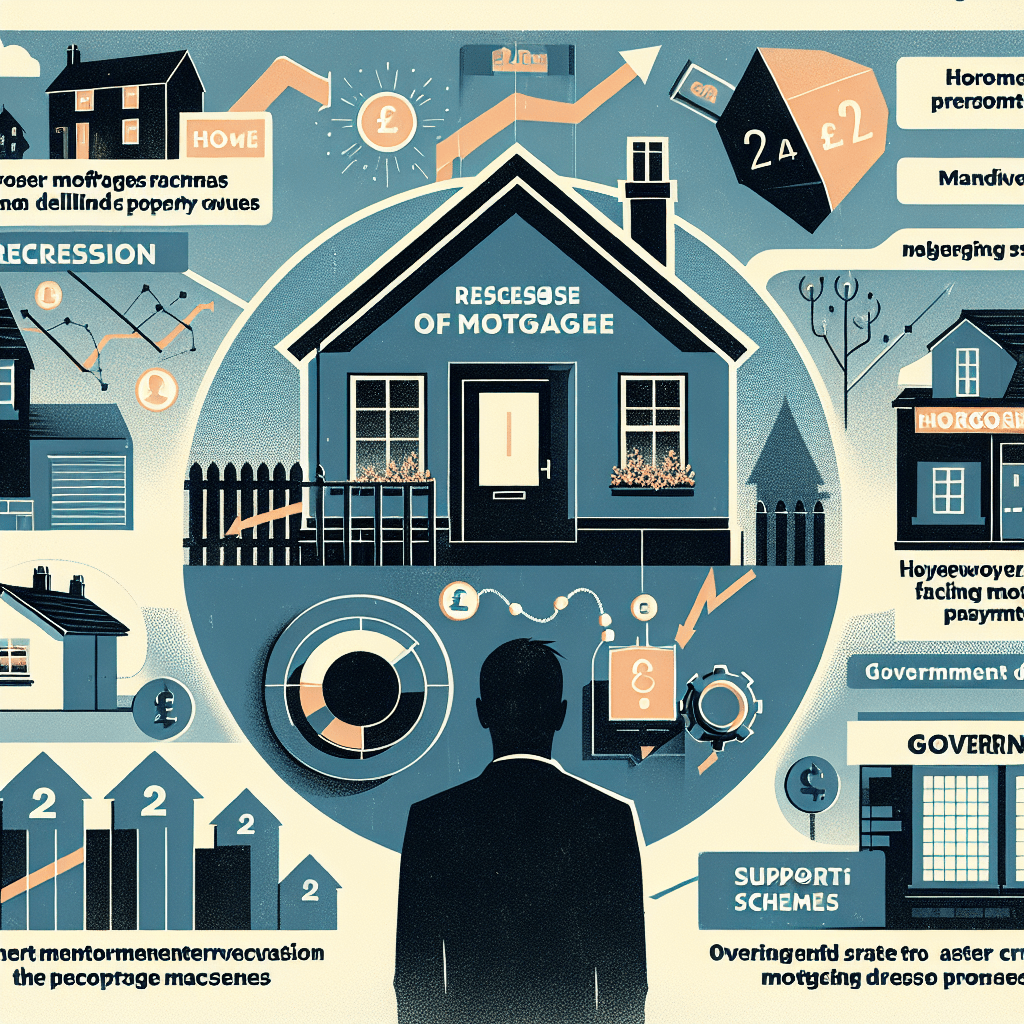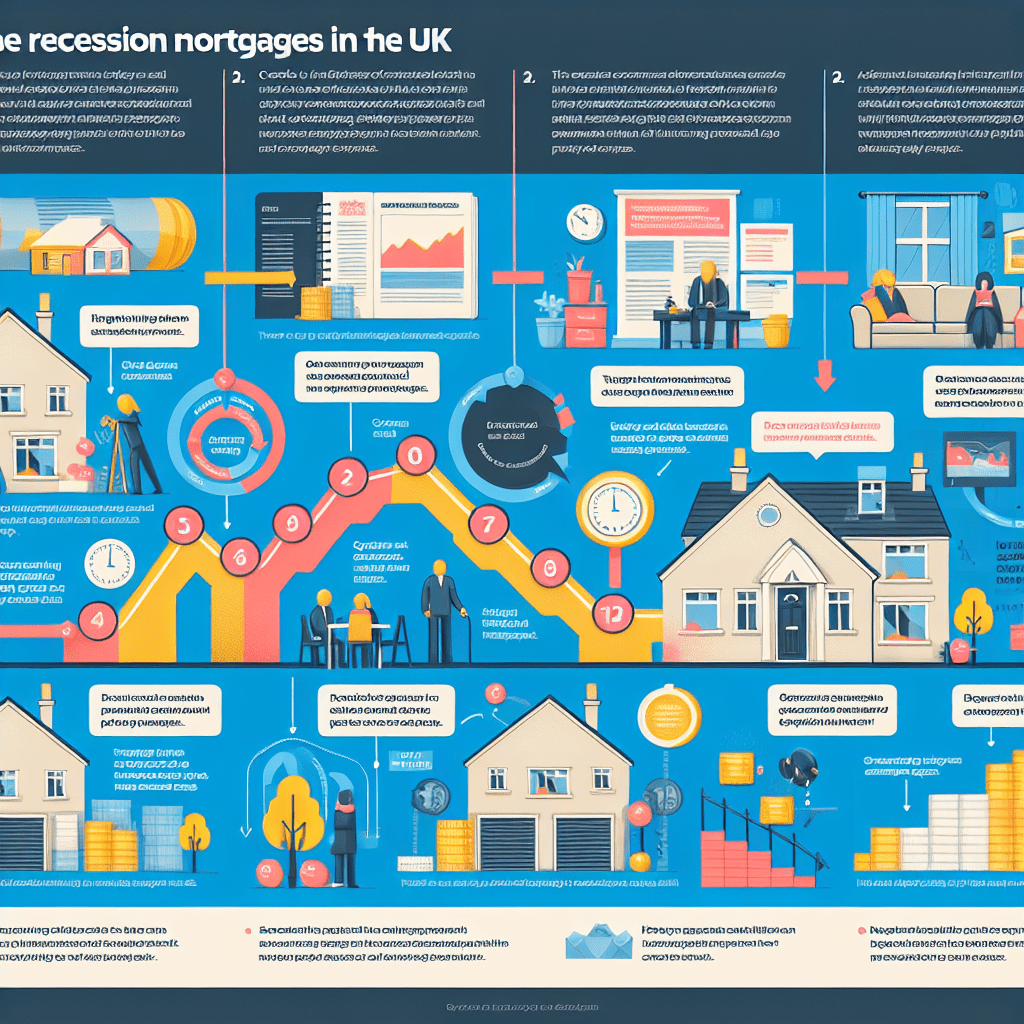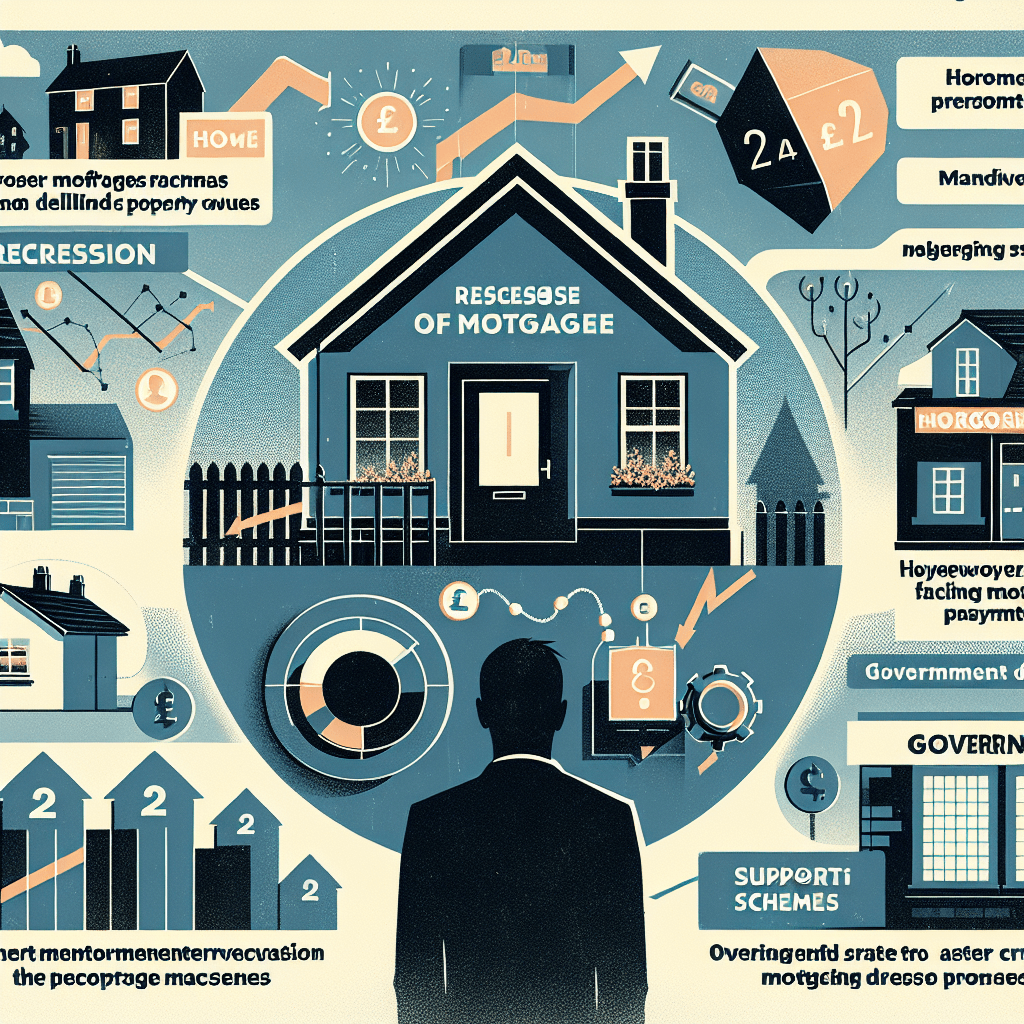During a recession in the UK, it is natural to wonder about the fate of mortgages. In such uncertain times, we understand that you may be concerned about what happens to mortgages during a recession UK and how this will affect your mortgage payments and the overall housing market. Rest assured, we are here to shed light on this topic and provide valuable insights and guidance.
In this article, we will discuss the various aspects of mortgages during a recession in the UK, from potential changes in interest rates to foreclosure risks and the support available to homeowners. So, let’s dive in and explore what the future holds for mortgages in the midst of a recession.

Mortgage Market Overview
The mortgage market in the UK is a crucial component of the country’s housing industry. It serves as a gateway for individuals and families to make their dreams of homeownership a reality. As the name suggests, a mortgage is a loan that allows individuals to purchase properties by spreading the repayment over an extended period, usually several decades. The mortgage market is influenced by various factors that impact interest rates, lending criteria, and the availability of mortgage products.
What Happens To Mortgages During A Recession UK and the Effects of a Recession on Mortgage Rates
During a recession, the economy experiences a slowdown, resulting in a decrease in demand for goods and services. This economic downturn has a significant impact on mortgage rates. Typically, recessions lead to a decrease in interest rates to stimulate borrowing and spending. Lower interest rates can make borrowing for mortgages more affordable, which can encourage individuals to enter the housing market.
The Bank of England plays a vital role in adjusting interest rates during a recession. By lowering the base rate, the central bank aims to stimulate economic growth and provide support to the mortgage market. A decrease in interest rates can lead to a reduction in mortgage rates, making it more feasible for borrowers to afford their monthly mortgage payments.
Impact on Existing Mortgages
One of the primary concerns during a recession is the affordability of existing mortgages. As the economy slows down and individuals face financial uncertainty, meeting mortgage payments becomes challenging for many homeowners. Reduced income, job losses, and increased living costs can put significant strain on individuals’ finances, leading to potential arrears and defaults.
For struggling borrowers, there are options available to help alleviate the burden of mortgage payments. Many lenders offer forbearance programs that allow borrowers to temporarily suspend or reduce their mortgage payments during times of financial hardship. Additionally, government support schemes and initiatives aim to assist homeowners facing difficulties, providing temporary relief and financial assistance.
Availability of New Mortgages
During a recession, the availability of new mortgages is significantly impacted. Lenders tend to tighten their lending criteria as they become more cautious about lending in uncertain economic conditions. Stricter requirements regarding credit scores, income verification, and loan-to-value ratios can make it more challenging for prospective borrowers to secure a mortgage.
Moreover, the number of mortgage products offered by lenders tends to decrease during a recession. Lenders may withdraw certain mortgage deals or limit the variety of products available. This reduction in choice can make it more difficult for borrowers to find a mortgage that suits their specific needs and circumstances.
Furthermore, mortgage applications face increased scrutiny during a recession. Lenders carefully assess the creditworthiness and financial stability of borrowers, leading to more thorough assessments and potentially longer processing times. Borrowers need to be prepared for additional documentation requirements and more detailed financial evaluations when applying for a mortgage during an economic downturn.

House Prices and Home Equity
One of the most profound impacts of a recession on the housing market is the depreciation in house prices. During an economic downturn, demand for properties typically decreases, leading to a decline in prices. This can result in a negative impact on homeowners’ equity, which is the difference between the property’s market value and the outstanding mortgage debt.
Homeowners who experience a decline in house prices may find themselves in a situation of negative equity. Negative equity occurs when the outstanding mortgage balance surpasses the current value of the property. This can be a significant concern for homeowners as it limits their ability to access financing or sell the property without incurring substantial financial losses.
Effects on Foreclosures and Repossessions
During a recession, the risk of foreclosure increases for homeowners who are unable to keep up with their mortgage payments. Foreclosure is a legal process that allows lenders to take possession of a property when the borrower fails to meet their mortgage obligations. As individuals face financial hardship, the number of foreclosures can rise.
Repossession rates during a recession can be concerning for both homeowners and lenders. The loss of a property through repossession can have severe financial and emotional implications for homeowners, while lenders may face challenges in selling repossessed properties in a weakened housing market.

Government Intervention and Support
In times of economic downturn, the government recognizes the importance of providing support and initiatives to assist homeowners. Various schemes and programs aim to provide relief and assistance to those facing financial difficulties. One such measure is mortgage payment holidays, which allow borrowers to temporarily suspend or reduce their mortgage payments, providing some financial relief during challenging times.
Additionally, furlough schemes implemented by the government during recessions can have an impact on mortgage borrowers. These schemes provide financial support to individuals who are unable to work due to economic circumstances, reducing the risk of job losses and supporting household incomes.
Financial Regulations and Stimulus Measures
To support the mortgage market during a recession, the Bank of England often implements stimulus measures. These measures can include lowering interest rates and implementing quantitative easing, which involves the purchase of government bonds to inject money into the economy. These actions aim to stimulate borrowing, investment, and economic growth, ultimately benefiting the mortgage market.
Financial regulations also play a crucial role in supporting the stability of the mortgage market during a recession. Regulatory bodies may introduce measures to ensure responsible lending practices, including stricter assessments of borrower affordability and enhanced monitoring of lenders’ activities. These regulations provide safeguards against excessive risk-taking and promote a more resilient mortgage market.

Role of Mortgage Brokers and Advisors
During a recession, seeking expert advice from mortgage brokers and advisors can be invaluable. These professionals have a comprehensive understanding of the mortgage market and can guide borrowers through the challenges and complexities of securing a mortgage during an economic downturn.
Mortgage brokers and advisors can recommend various options and strategies to borrowers, considering their individual circumstances. They are well-versed in the market conditions, lender policies, and available mortgage products, enabling them to provide tailored advice and help borrowers navigate the mortgage landscape with confidence.
Long-Term Outlook for the Mortgage Market
While a recession can have significant impacts on the mortgage market, it is essential to consider the long-term outlook. Historically, the UK housing market has demonstrated resilience and the ability to recover from economic downturns. As the economy stabilizes and confidence returns, the mortgage market is likely to regain strength, presenting opportunities for both existing and potential homeowners.
The government’s commitment to supporting homeowners, the effectiveness of stimulus measures, and the expertise of mortgage professionals contribute to fostering a positive outlook for the mortgage market during and after a recession. Homeownership remains a key aspiration for many individuals in the UK, and the mortgage market continues to play a vital role in helping them achieve this goal.


